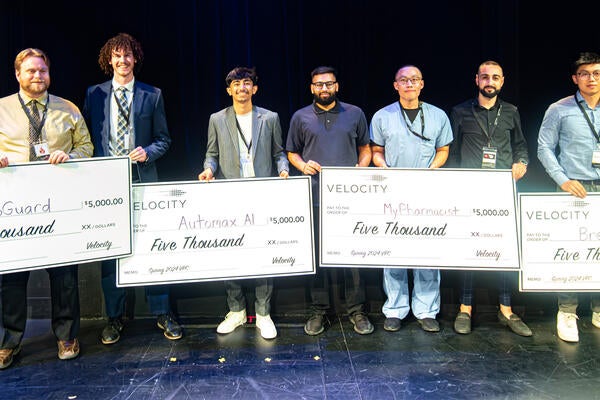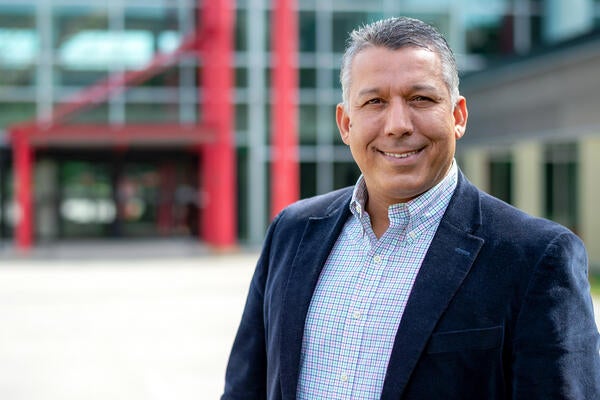
New AI-powered search engine makes it easier to find information in the fight against COVID-19
Prof. Jimmy Lin spearheads creation of new search engine

Prof. Jimmy Lin spearheads creation of new search engine
By Media RelationsUniversity of Waterloo professor Jimmy Lin has spearheaded the creation of a dedicated search engine for those who are engaged in the fight against COVID-19.
The system, called Neural Covidex, provides quick and easy access to the Allen Institute for AI’s COVID-19 Open Research Dataset (CORD-19). CORD-19 is a publicly-available, curated resource of over 45,000 scholarly articles, medical reports, journal articles, and preprints about COVID-19 and the coronavirus family of viruses for use by the global research community.
“Neural Covidex can provide an easier way for clinicians, researchers, and other experts to navigate the plethora of information that is emerging from the scientific community and obtain relevant, actionable evidence as quickly as possible,” said Lin, who holds the David R. Cheriton Chair in the David R. Cheriton School of Computer Science.
Lin, like many others, wanted to contribute in whatever way he could in the fight against COVID-19. His research focuses on building systems that help users gain insights from large amounts of text, leveraging techniques based on artificial intelligence (AI) and neural networks. He was able to rapidly redirect his research into building natural language processing and information retrieval components for exploring Allen Institute for AI’s dataset.
CORD-19 consists of articles dating back to SARS and MERS and previous coronaviruses. It includes knowledge on a wide range of topics, spanning public health, clinical care, epidemiology, genetics, and more. The dataset is updated weekly as new research is published in peer-reviewed publications and various preprint services.
“The ultimate goal of our work is to build a system that can help experts who are working on this worldwide pandemic,” said Lin. “For example, doctors who are conducting meta-analyses to update clincal care guidelines and virologists who are working on developing a vaccine. We know we’re still pretty far from this, but we’re working hard to improve our system incrementally by leveraging the latest AI techniques.”
Working with Lin is his colleague professor Kyunghyun Cho of New York University and two Waterloo undergraduate students in Computer Science, Edwin Zhang and Nikhil Gupta.

Read more
Velocity pitch competition winners share exciting startup ideas using artificial intelligence and deep tech, showcasing creativity and entrepreneurial prowess

Read more
University of Waterloo establishes prestigious industry-sponsored research chair in network automation to be held by Raouf Boutaba

Read more
New statistics research provides insight on when a track-and-field athlete’s performance peaks
The University of Waterloo acknowledges that much of our work takes place on the traditional territory of the Neutral, Anishinaabeg, and Haudenosaunee peoples. Our main campus is situated on the Haldimand Tract, the land granted to the Six Nations that includes six miles on each side of the Grand River. Our active work toward reconciliation takes place across our campuses through research, learning, teaching, and community building, and is co-ordinated within the Office of Indigenous Relations.